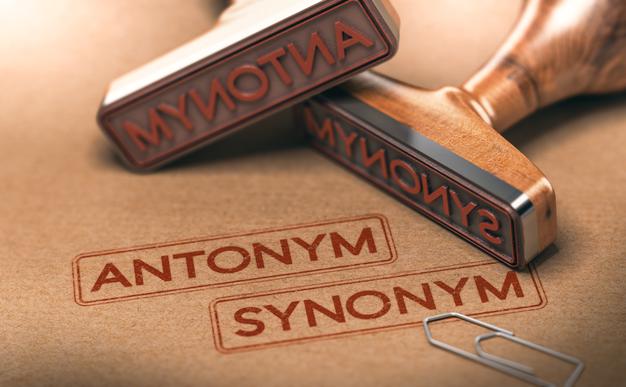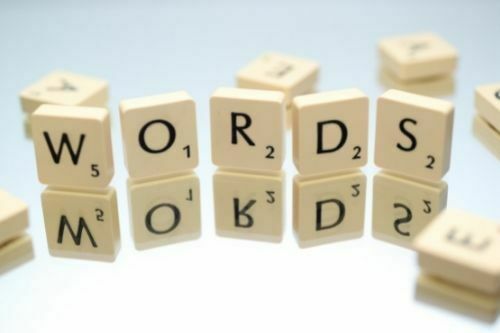Worked on Identifying Antonyms Tiffany Identified Antonyms With 50 Accuracy Plan to Continue
Do you want to improve your vocabulary? If yes, we have the perfect solution for you. Discover 100+ antonym words and their meanings in this blog to improve your English! Test yourself along the way. Keep scrolling!
Table of Contents
- Antonym words | An overview
- Difference between synonyms and antonyms
- The role of antonyms
- List of 100 antonyms
- 50 more to go!
- 20 Bonus antonyms
- Types of antonyms
- 1. Auto antonyms
- 2. Complementary antonyms
- 3. Relational antonyms
- 4. Graded Antonyms
- The function of antonyms
- Can synonyms and antonyms enhance your vocabulary skills?
- Is there an easy way to learn antonym words?
- Key takeaways
- FAQs
Antonym words | An overview
The 20-volume Oxford Dictionary's Second Edition has a whopping 171,476 words that are currently in use in the English language. Webster's Third New International Dictionary includes close to 470,000 entries for new words. These numbers, however, do not accurately cover the expanse of words and meanings that are encompassed within the English language. Your current vocabulary may include many daily use English words, but are you aware of the right antonym words to use in your conversations?
The word "antonym" has its origins in the Greek language. The Greek word for "opposite" is "anti" and "name" is "onym." Antonyms, therefore, are words that have opposite or contrasting meanings. In fact, the word antonym, coined in 1867, serves as the opposite of synonyms.
Understanding the kinds of antonyms and examples of the same can help you create an impact in your everyday conversations. Through these antonyms, you can make your writing more fun and engaging. They can also help you ace your IELTS and TOEFL. But do you know what some key differences between antonyms and synonyms are? Let's have a look!
Difference between synonyms and antonyms
| Antonyms | Synonyms |
| Words that are opposites of each other are called antonyms. | Words that have similar or identical meanings are called synonyms. |
| According to Merriam Webster, an antonym is a word of opposite meaning. | According to Merriam Webster, a synonym is one of two or more words or expressions of the same language that have the same or nearly the same meaning in some or all senses. |
| Examples- Divide – Unite; Vacant – Occupied; Freeze – Boil. | Examples- Annihilation – Destruction; Polite – Gracious; Risky – Dangerous. |
The role of antonyms
- Antonyms serve as a good explanation of the lexicography in the definitions of words in the dictionary.
- They also appear like a good tool for forming the antithesis in literature. Also, the figurative antonym meaning is an expressive tool in the literature.
- For the word-formation linguistic ability, it can be said that they play a significant role in enriching the language and vocabulary.
- The importance of antonym is observed in the process of mother language acquisition and of the second language, and in our specific case, that of the English language.
- Antonyms also show the ability to better explain words with their meaning in analogous and bilingual dictionaries.
- In psychology, antonyms can be linked with studies associating words through which the human mind can function in relation to countering.
- In literature, opposites are analyzed as distinguishing features of dramatic prose.
List of 100 antonyms

Here are 100 antonyms words that can be an excellent tool to enrich your vocabulary and foster meaningful conversations in English.
1. Artificial – Natural
2. Arrive – Depart
3. Argue – Agree
4. All – None
5. Amateur – Professional
6. Alive – Dead
7. Advanced – Elementary
8. Adult – Child
9. Ancestor – Descendant
10. Angel – Devil
11. Boy – Girl
12. Build – Destroy
13. Buy – Sell
14. Borrow – Lend
15. Body – Soul
16. Blunt – Sharp
17. Bitter – Sweet
18. Bottom – Top
19. Boring – Exciting
20. Busy – Lazy
21. Ceiling – Floor
22. Catch – Miss
23. Careful – Careless
24. Calm – Excited
25. Close – Open
26. Cold – Hot
27. Clear – Cloudy
28. Child – Adult
29. Certainly – Probably
30. Callous – Sensitive
31. Die – Live
32. Dictatorship – Republic
33. Dainty – Clumsy
34. Desperate – Hopeful
35. Divide – Unite
36. Domestic – Foreign
37. Distant – Near
38. Different – Alike
39. Drama – Comedy
40. Dull – Interesting
41. Emigration – Immigration
42. Empty – Full
43. Eager – Apathetic
44. Everything – Nothing
45. Evening – Morning
46. Even – Odd
47. Exclude – Include
48. Expensive – Cheap
49. Export – Import
50. Exit – Entrance

50 more to go!
51. Foreground – Background
52. For – Against
53. Forbid – Allow
54. Flippant – Somber
55. Flat – Hilly
56. Future – Past
57. Frequently – Occasionally
58. Funny – Serious
59. Free- Dependent
60. Friend – Enemy
61. Gaiety – Misery
62. Give – Take
63. Guest – Host
64. Guilty – Innocent
65. Gentle – Violent
66. Gentleman – Lady
67. General – Particular
68. Grown-Up – Child
69. Good – Bad
70. Giant – Tiny
71. Heavy – Light
72. Heaven – Hell
73. Hopeful – Desperate
74. Health – Disease
75. Hate – Love
76. Harvest – Plant
77. Handsome – Ugly
78. Happy – Sad
79. High – Low
80. Here – There
81. Intentional – Accidental
82. Intelligent – Silly
83. Inside – Outside
84. Ignore – Notice
85. Increase – Reduce
86. Interrupt – Continue
87. Insult – Compliment
88. Ill – Healthy
89. Ignore – Notice
90. Import – Export
91. Loser – Winner
92. Lower – Higher
93. Marry – Divorce
94. Mend – Break
95. Midnight – Noon
96. Melt – Freeze
97. Negative – Affirmative
98. Native – Foreigner
99. Nasty – Nice
100. Narrow – Broad

20 Bonus antonyms
1. Happy – Wistful
2. Humble – Proud
3. Important – Trivial
4. Safe – Unsafe
5. Secure – Insecure
6. Intentional – Accidental
7. Brighten – Fade
8. Broad – Narrow
9. Limited – Boundless
10. War – Peace
11. Permanent – Temporary
12. Plentiful – Scarce
13. Plural – Singular
14. Guilty – Innocent
15. Zenith – Nadir
16. Zip – Unzip
17. Exterior – Interior
18. External – Internal
19. Exterior – Interior
20. External – Internal
Types of antonyms

It is imperative for English language speakers to have an understanding of when to use what word. This can help speakers structure their conversations and convey their message accurately.
Understanding the kinds of antonyms in English is a good step towards creating meaningful and relevant sentences – both verbal and written.
1. Auto antonyms
Auto-antonyms are words that have two meanings, including an opposite meaning. Auto-antonyms are also referred to as "Janu words" and "contronym."
Examples of auto-antonyms are-
I. Clip (Verb)
Meaning 1 – To hold tightly or fasten together.
Meaning 2 – To cut off or cut apart.
II. Give Out (Verb)
Meaning 1 – To stop producing or cease functioning.
Meaning 2 – To distribute or produce
III. Bound (Verb)
Meaning 1 – To spring or leap.
Meaning 2 – To be restrained by a material such as rope.
IV. Moot (Adjective)
Meaning 1 – Something academic and debatable.
Meaning 2 – Irrelevant.
V. Oversight (Noun)
Meaning 1 – To keep under watchful care or supervision
Meaning 2 – To omit or make an omission.
2. Complementary antonyms
Complementary antonym words are also referred to as contradictory antonyms or direct antonyms. These are words that exist independently of one another. They do not need any other term or definition to be included in a statement.
Examples of complementary antonyms are-
I. True – False
II. Entrance – Exit
III. Night – Day
IV. Dead – Alive
V. Pass – Fail
3. Relational antonyms
Relational antonyms are also referred to as converse antonyms. This term describes word pairs where the opposite makes sense only in the context of the relationship between the two meanings. An example of relational antonyms is "near" and "far," since an object cannot be near without measuring it against an object that is far away.
Examples of relational antonyms include-
I. Teacher – Pupil
II. Teach – Learn
III. Come – Go
IV. Parent – Child
V. Doctor – Patient

4. Graded Antonyms
Graded antonyms show a variation or grade between words that have similar meanings. For example, the words "overjoyed," "gratified," "pleased," and "content" have a connection in relation to the word happy. These antonyms can be used in place of regular-use terms.
Additional examples of graded antonyms include-
I. Healthy – Vigorous, Fit, Strong
II. Sad – Gloomy, Dejected, Miserable
III. Stupid – Obtuse, Foolish, Unwise, Dim
IV. Petite – Slight, Little
V. Big – Huge, Full-Size, Bulky
The function of antonyms
- Learning antonyms is an easy and effective way of enhancing your vocabulary.
- Recognizing words in combination with the other or in relation to other groups of words can help you derive the right meanings and insights.
- Studying antonyms allows you to choose your words appropriately when conveying a message to your audience.
- Learning these opposite words will additionally facilitate following instructions and directions to the T.
- Antonym words help you better describe the state of the world around you.
- In addition to school texts, it helps dictionaries explain words better to foreign students.
- Antonyms are also key to designing the signs on traffic lights, visual artworks, and more.
Can synonyms and antonyms enhance your vocabulary skills?
Learning synonyms and antonyms is a great way to improve your vocabulary as you get several substitutes for the same word. This helps in-
- Minimizing monotony in your language, and you might be able to capture the attention of your audience too.
- Antonyms and synonyms can also help you express yourself better by using the right word in the right place.
- Using these words can also help make your language interesting and effective.
- Lastly, many competitive exams judge you on your vocabulary or have synonyms and antonyms as part of the syllabus. Learning these words can help you nail those exams.
Is there an easy way to learn antonym words?
While learning antonyms can enrich your vocabulary, it might also leave you confused if you try to do it all at once. Therefore, we have listed some effective ways of learning these words-
- Begin with learning a few words and inculcating those in your vocabulary. Try and integrate the words you learn in your conversations and writing. Only then will it serve its purpose.
- Don't try to learn antonyms and synonyms together, as it might confuse you and affect your fluency in English. Instead, learn one thing at a time and master it before moving on to the next.
- Start with familiarizing yourself with synonyms and antonym words related to your interests, hobbies, etc. Then, you can move to watching movies, listening to podcasts, reading blogs, etc., to broaden your horizon of learning.
- Don't mug up the antonym words, as they won't always fit the same in every sentence. Instead, learn what the word means in the sentence context and use antonyms when appropriate.
- Take every word as a new word and learn its meaning. This way, your brain will build connections, and antonyms will come more naturally over time.
Key takeaways
- The word "antonym" is derived from the Greek equivalent of the words "opposite" and "name." Therefore, antonym words help convey the opposite aspect of an idea.
- There are many antonyms that are used in everyday conversation. Understanding these antonyms can help structure sentences and increase vocabulary.
- There are four different kinds of antonyms- auto-antonyms, complementary antonyms, relational antonyms, and graded antonyms.
- Understanding the applications of antonyms is key to using them effectively and without errors.
- Use antonyms to make sentences more refined and interesting.
- Save the antonym list given above. Learn 5 or more each day and incorporate them into your daily vocabulary.
- Make this process fun by trying word games and using different antonyms each time.
That's all we have for you in this blog. If you have any questions/suggestions, reach out to us or drop a comment below.
Liked this blog? Read next: English speech topics | Best topics to engage your audience!
FAQs
Q1. What is the difference between a synonym and an antonym?
Answer – Synonyms are words that have the same or a similar meaning to a given the word. Antonyms are words that have an opposite meaning.
Q2. What is a synecdoche?
Answer – A synecdoche is a figure of speech in which a part represents a whole.
Q3. How are antonyms used in debates?
Answer – Antonyms can be used effectively in debates to draw comparisons between two or more points of view.
Q4. What is the best antonym for the word common?
Answer- Some antonyms for the word common are-
- Uncommon
- Rare
- Exceptional
- Infrequent
- Peculiar
- Irregular
Q5. What does antonym mean?
Answer- Words that have opposite meanings are called antonyms. They can be used to make sentences sound more interesting and grab the readers' attention.
Q6. How do you use antonyms?
Answer- When you use antonyms, you can show contrast in points and give clear distinctions in meanings. They give you speech/language a broader variation. To use antonyms right, first, figure out the meaning of the word you want to use. To make a sentence sound and feel right, use antonyms of the same word.
Antonym example- The ocean waves look fierce today, but they were very gentle yesterday.
Q7. Does every word have an antonym?
Answer- No, not all words have antonyms, but most nouns, verbs, adverbs, and adjectives do. Some words can have more than one antonym; for example, the antonym for neat can be messy and untidy.
Source: https://ischoolconnect.com/blog/100-common-antonym-words-for-daily-use/
0 Response to "Worked on Identifying Antonyms Tiffany Identified Antonyms With 50 Accuracy Plan to Continue"
Post a Comment